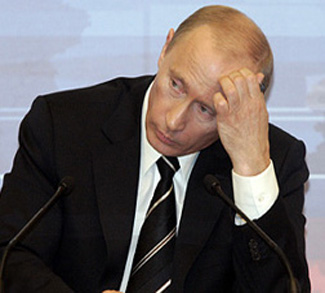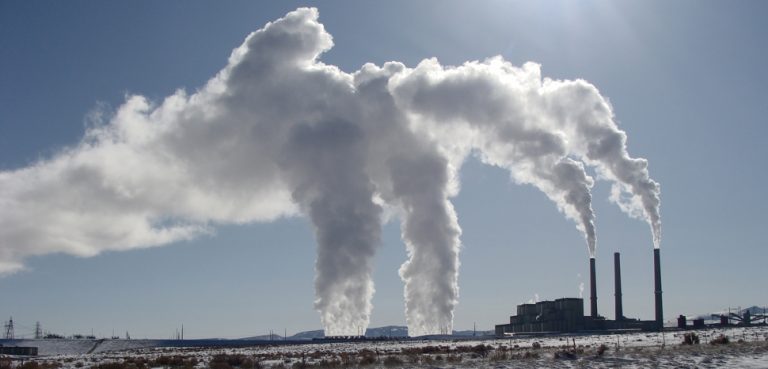Assessing morally obtuse, naïve multiculturalism is a quality lacking in the ForeignAffairs.com article by Niko Tsafos titled, “A U.S. Gas War with Russia?” The premise grossly understates Russia’s reaction to the United States’ (US) liquid natural gas (LNG) exports to Europe, and gives the impression Russia will not be overly bothered by this occurring. It has become dangerously fashionable to blame problems on outside factors, instead of considering regime type, historical precedence, and basic rules of deterrence. Once deterrence is lost it is nearly impossible to regain without military assets being used. But what does this mean for the interplay of energy and geopolitics?
The answer is: everything. Take Russia as an example. The U.S. has now accused the Russians – with credible evidence – of being at the heart of the biggest doping scandal in sports over what happened at the 2014 Sochi Winter Olympics. The Russians cheated at unprecedented levels to gain some sort of national dignity; yet the world should believe the Russians would do nothing as US LNG floods a market they have authoritatively controlled for years. Russia is willing to act irrationally for something as silly as the Olympic games, which shows the extent they are willing to protect their interests. They cheat for worldwide recognition at a sporting event, and there aren’t even lives or the type of money LNG produces at stake. Clarion calls to prudence and sound wisdom proclaim the Russians will have a vigorous response to US LNG encroaching on their European markets. Mr. Putin has never shown himself to sit on the sidelines when Russian interests are threatened.
Information now moves around the world at the click of a button when trillions are transferred between central banks, but energy markets are consistently being sold as behaving in a rational way when it comes to supply and demand. If supply and demand were taken in their purest form then prices of fossil fuels should continue moving lower. If you consider just the U.S., it has billions of barrels of oil sitting untapped in the Atlantic and Pacific oceans under US jurisdiction. That could move prices lower with the signature of a new US president’s pen.
Many reasons come to mind why basic economics has been pilfered by geopolitical mindsets, but unfortunately the largest one is domestic politics, and I’d argue, geopolitical posturing by countries such as Saudi Arabia over the fallacious nature of the Iran nuclear deal. The Saudis are in a desperate mode, and to poo-poo away nations such as the Saudis for having self-interest rightly understood is a dangerous way to start a nuclear arms race, since oil is gushing from Middle Eastern spigots though prices are lower. The Saudis and other nations such as Iraq, Libya, Venezuela, China, Russia, and most Middle Eastern nations aren’t going to idly sit back while the current US administration believes it can get away with contempt for traditional US foreign policy.
Deputy National Security Advisor and Presidential speechwriter Ben Rhodes does more to keep oil prices fluctuating without economic considerations in play by lying and ramming through an Iranian deal than anything OPEC will ever accomplish by not agreeing to production limits. Mr. Rhodes has further tarnished US credibility at great cost and danger when he uses phrases such as, “blob,” to ridicule bipartisan, experienced foreign policy established strategists. A one-time, would-be novelist (Mr. Rhodes) having such a large stake in US foreign policy is something energy markets along with shocked US allies and opportunistic enemies notice.
The maddening part are traditional gatekeepers such as law, academia, media, and popular culture now promote a specter of meltdown in the oil and gas industry (think fracking) without giving civilized society options to mitigate risks that have institutionalized counterproductive policies. Famous investment managers make political and economic predictions outside the realm of their expertise without considering the source of where the problems began and who is responsible for them. They merely diagnosis problems without giving a cure; moreover this forces fossil fuel markets to now follow the geopolitical whims of countries and national candidates. This particular type of geopolitical meandering could be characterized as Soviet-style social engineering, instead of how markets should behave. Coercive powers of paramilitary groups from the Middle East to Central Asia and socialistic, economic behavioral settings in Venezuela are causing energy markets to not follow the invisible hand of the market characterized by Adam Smith’s, Wealth of Nations.
Oil and gas interests now seem to worry more about whose foreign policy will be more aggressive – Donald Trump or Hillary Clinton’s – when the truth is, it doesn’t actually matter when you consider tens of millions of barrels of oil are sitting in supertankers offshore waiting to be unloaded around the world. The demand simply isn’t there, and US shale can fill most worldwide demand since the US is the largest combined producer of oil and gas worldwide.
But no one knows – not even experienced experts – if oil will stay at $50, move to $60, or plunge lower or higher, because of geopolitics. Uncertainty in Canadian oil sands from devastating wildfires, Russian aggression under Putin, Saudi oil strategy, not to mention catastrophic problems with China encroaching the South China Sea freedom of navigation patrols by the US Navy (which caused the U.S. to green-light arms purchases by Vietnam) are now factors that control oil and gas markets.
Energy and geopolitics are now intertwined more than ever. This level of fluctuation hasn’t been seen since the OPEC oil embargo of the 1970s. Now with South Korea, Estonia, Japan, Romania, the Czech Republic, Poland, and the Philippines on one side and China, Russia and Iran threatening them along with a host of other countries on the other, aggressors aren’t sure who will deter them, and weaker vessels are unsure of U.S. and NATO protection. When a global void takes place, and the U.S. has lost its ability to sustainably deter enemies by making deals with fanatical Iranian mullahs who still want to kill US, Western and Jewish citizens, then oil and gas behaving under the laws of supply and demand are potentially null and void.
Rigorous analysis should provide forecasting and predictions for fossil fuel price trends, but thoughtful geopolitical methodology has been kicked to the curb when US foreign policy moves seem to indicate the world is up for grabs. Now oil and gas markets should question whether President Obama is a lame-duck with only months left until he cashes in post-presidency, instead of whether the U.S. has completely retreated from the Bretton-Woods agreement. When and how oil will or won’t make a comeback can no longer be predicated on econometrics, sound balance sheets, and recoverable versus unrecoverable reserves. In its place will now be issues of whether or not ISIS captures Libyan oil fields and other geopolitical rumblings that haven’t been seen post World War II. What Mr. Tsafos did is understandable when you don’t want to think, or even believe the unthinkable. Mainly, war hasn’t gone anywhere, and most countries don’t follow western civilized standards of the rule of law and respect for individual rights. Samuel Huntington described it as A Clash of Civilizations.
What Mr. Tsafos saw as saber-rattling by US hawks and others who supposedly don’t understand Russian natural gas interests, others such as myself, see boasts and bullying by a Russian maniacal, dictator who doesn’t care whether or not his country grows economically, politically, or socially. Only that he and his supporters stay in power. Mr. Tsafos and fossil fuel investors would be wise to not consider threats by Russia, China, Iran and Nigerian Avengers as merely tough talk, but the result of eroding US resolve abroad and at home. And that is dangerous for worldwide economic growth, peace, and the stability of oil and natural gas investments.




